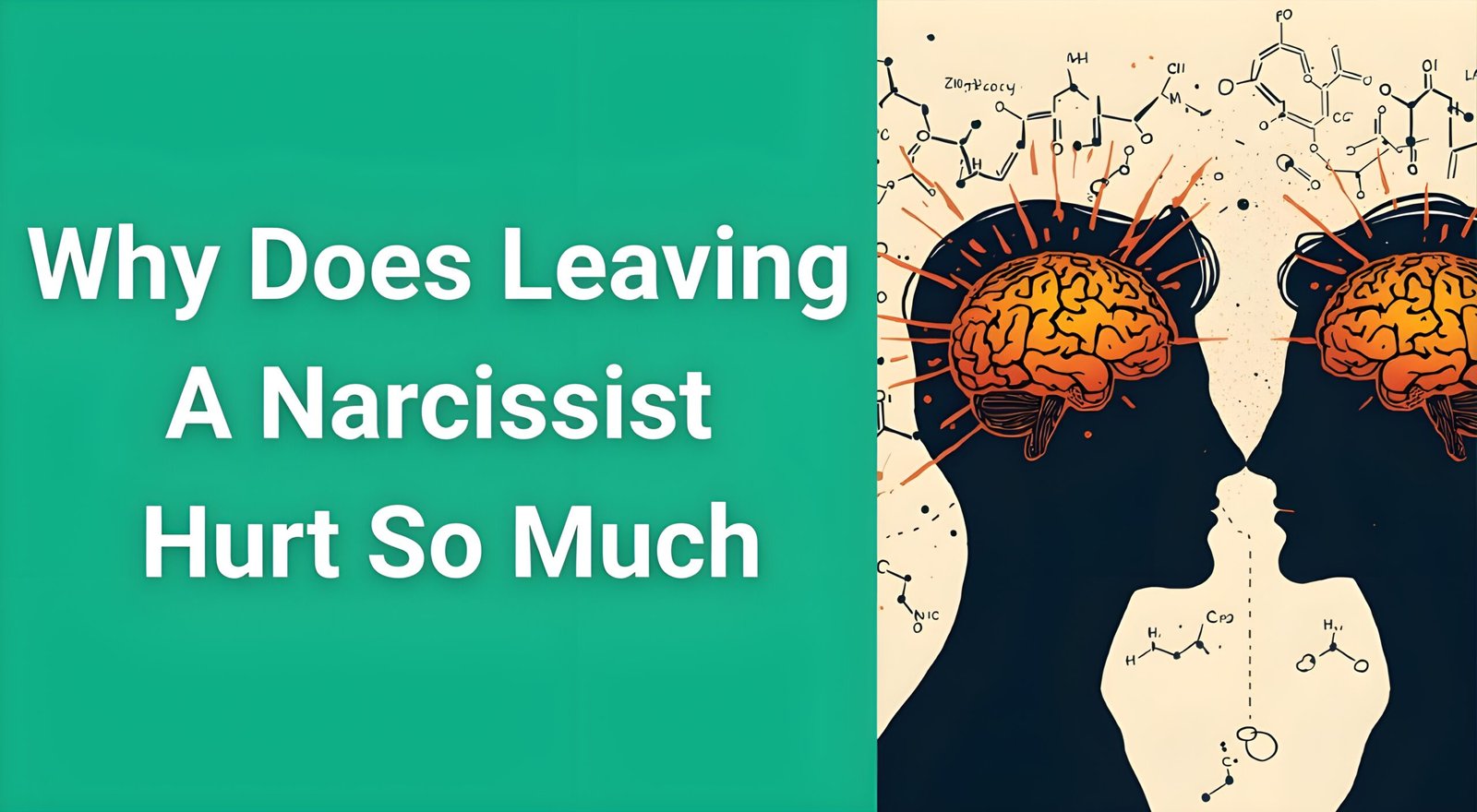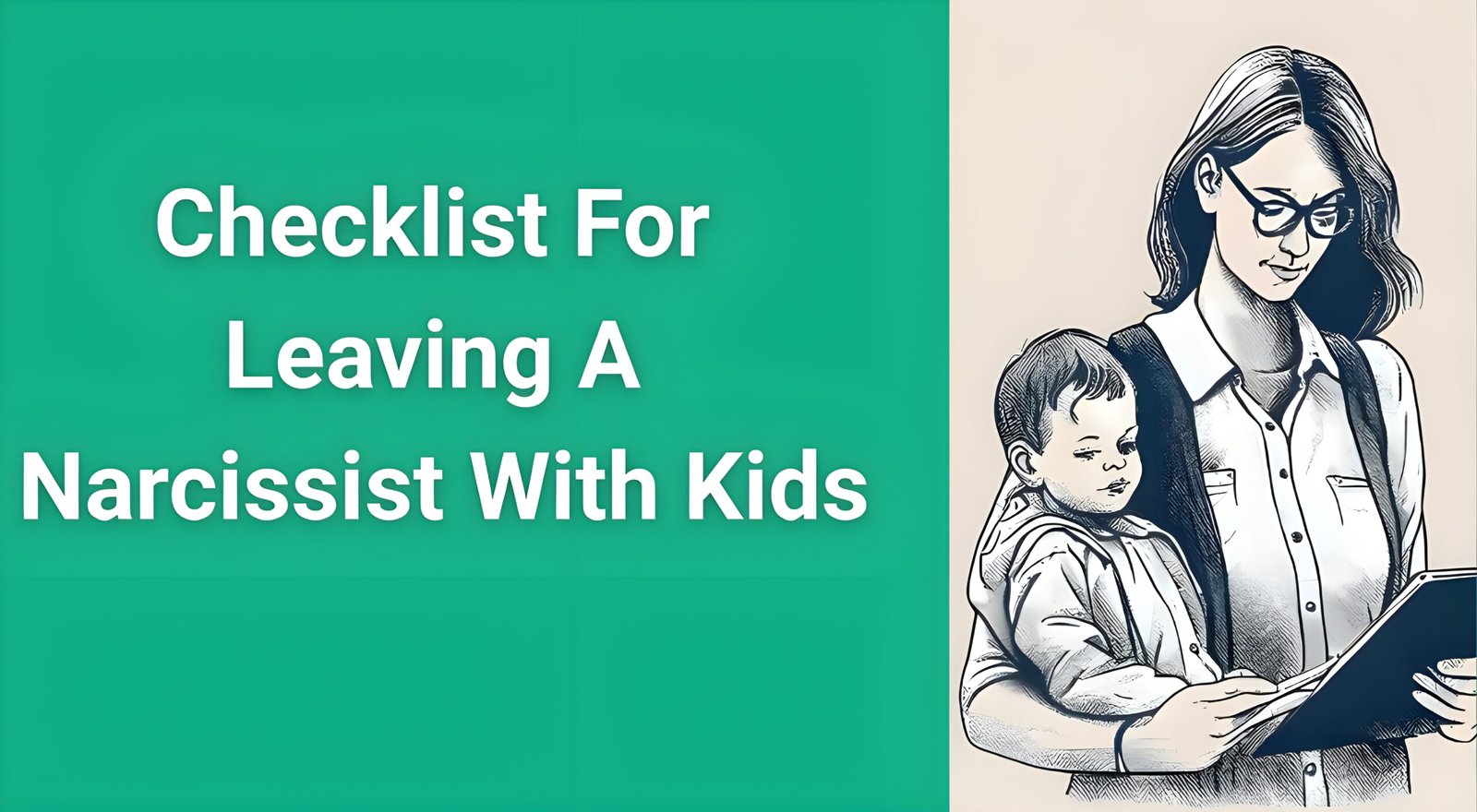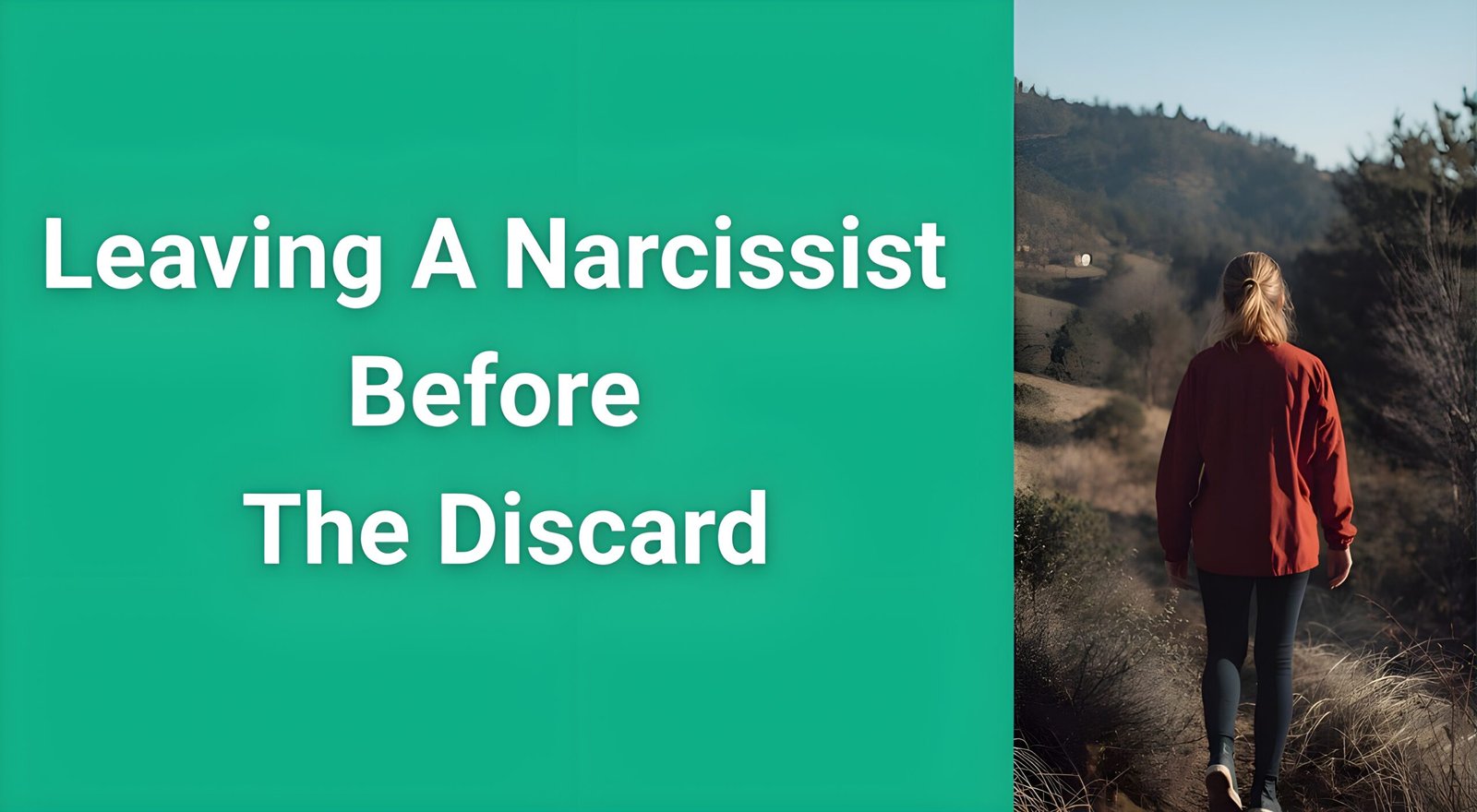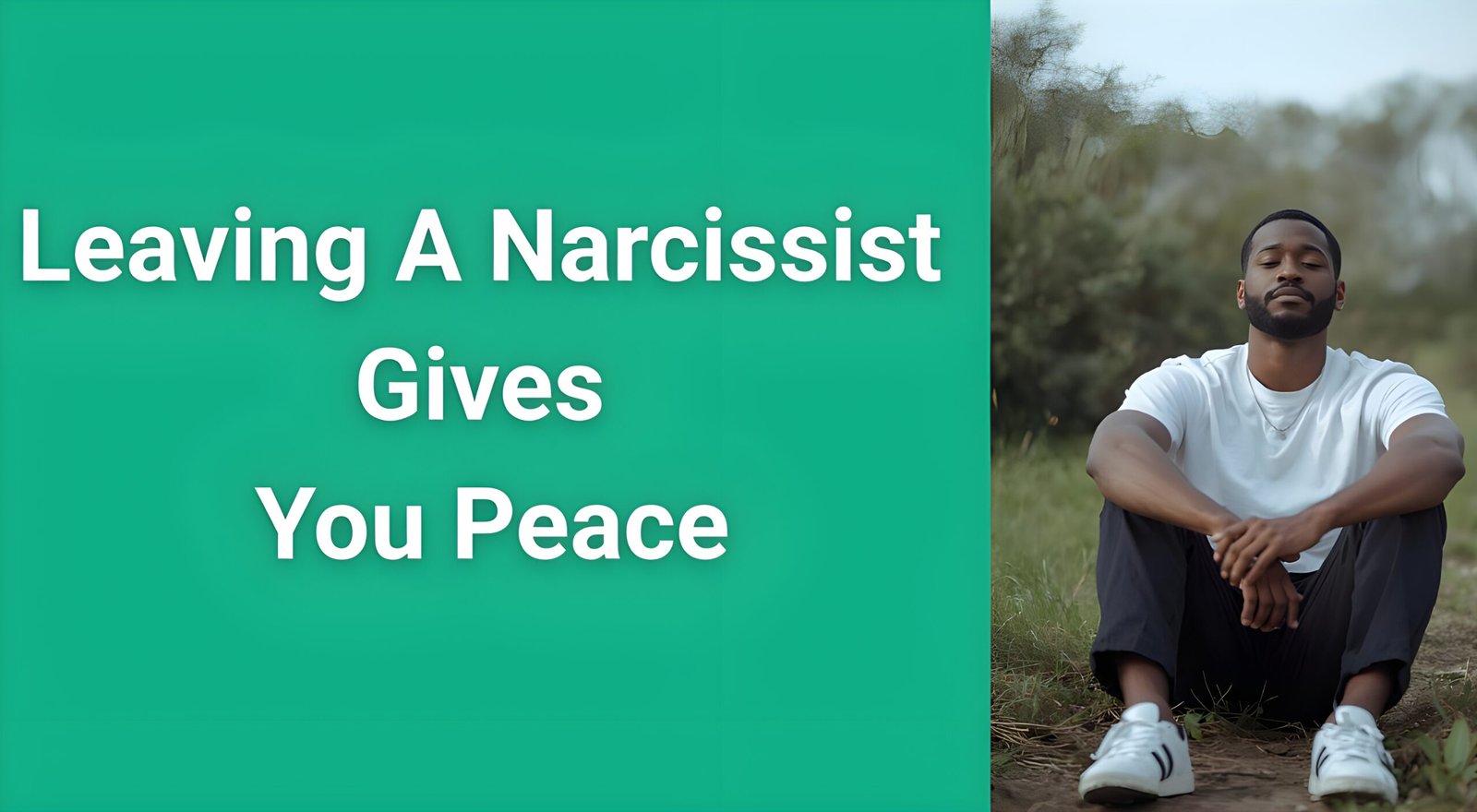If you’ve ever wondered why does leaving a narcissist hurt so much more than ending other relationships, you’re not alone—and you’re definitely not weak. The excruciating pain you feel isn’t just in your head; it’s a complex neurobiological response that science can finally explain. Understanding why your brain and body react so intensely to separation from a narcissistic partner is the first step toward healing and recognizing that your response is completely normal. Why leaving during love bombing feels impossible?
- The Neurological Reality: Your Brain on Narcissistic Relationships
- Why Does Leaving a Narcissist Hurt So Much More Than Other Breakups?
- The Physical and Emotional Withdrawal Process
- Breaking Free: Why Does Leaving a Narcissist Hurt So Much and How to Heal
- The Long-Term Impact: Why Professional Assessment Matters
- The Role of Self-Compassion in Healing
- When You Can’t Leave Yet: Survival Strategies
- Signs Your Brain Is Healing
- Frequently Asked Questions
- Conclusion: Your Pain Has Purpose
The truth is, leaving a narcissist triggers a cascade of brain chemistry changes that can feel like physical withdrawal from an addictive substance. Your pain is real, it’s measurable, and most importantly, it’s not your fault.
The Neurological Reality: Your Brain on Narcissistic Relationships
When people ask why does leaving a narcissist hurt so much, the answer lies deep within your brain chemistry. Unlike healthy relationships that create stable emotional connections, narcissistic relationships create what researchers call “trauma bonds”—powerful neurochemical attachments that form through cycles of abuse and intermittent positive reinforcement.
The Four Neurochemicals That Trap You
Your brain becomes chemically dependent on the narcissistic relationship through four key neurotransmitters that become severely dysregulated:
Dopamine: The Addiction Chemical
In healthy relationships, dopamine creates steady feelings of pleasure and reward. But narcissists employ intermittent reinforcement—unpredictable cycles of punishment and reward that hijack your brain’s reward system. This pattern mirrors gambling addiction, where your brain becomes addicted not to consistent rewards, but to the possibility of reward.
Each time the narcissist shows you affection after a period of coldness, your dopamine system floods with the same chemicals released during cocaine use. Your brain interprets this inconsistent pattern as extremely valuable, making you crave more contact even when logic tells you to run.
Oxytocin: The Bonding Hormone
Physical intimacy, emotional connection, and even simple touches release oxytocin—the same hormone that bonds mothers to babies. Even in abusive relationships, physical contact and moments of seeming vulnerability create powerful oxytocin surges that cement emotional bonds.
Research shows that trauma survivors often have significantly lower baseline oxytocin levels, making them more susceptible to forming intense bonds when oxytocin is released. This explains why physical withdrawal from a narcissist can feel like grieving a death.
Cortisol and Adrenaline: The Stress Response
Living with a narcissist keeps your nervous system in chronic fight-or-flight mode. Your body becomes accustomed to high levels of stress hormones, creating a tolerance that makes calm situations feel uncomfortable or “boring.” When you leave, your brain actually craves the familiar stress response, making the relationship feel necessary for survival.
Endogenous Opioids: Your Natural Painkillers
During trauma bonding, your brain releases natural opioids to cope with emotional pain. Over time, you become dependent on these internally-produced drugs. When you leave the narcissist, your natural painkiller production drops dramatically, leaving you in raw emotional agony without chemical relief.
Why Does Leaving a Narcissist Hurt So Much More Than Other Breakups?
The answer lies in understanding that narcissistic relationships aren’t just romantic connections—they’re systematic conditioning programs that rewire your brain for dependency.
The Intermittent Reinforcement Trap
Normal relationships provide relatively consistent emotional support. You might have disagreements, but the basic foundation of respect and care remains stable. Narcissistic relationships operate on intermittent reinforcement schedules proven in laboratory settings to create the strongest behavioral conditioning.
Think of it this way: if a slot machine paid out every time, you’d quickly become bored. If it never paid out, you’d walk away. But slot machines are programmed to pay out just often enough to keep you pulling the lever, hoping for the next jackpot. Narcissists unconsciously employ this same psychological principle.
The irregular pattern of cruelty followed by affection creates neural pathways that make your brain interpret the narcissist as incredibly valuable—even more valuable than consistently kind people. This is why leaving a narcissist feels like losing someone irreplaceable, even when you logically know they treated you terribly.
The Familiar Principle: When Chaos Feels Like Home
If you experienced inconsistent caregiving, emotional neglect, or abuse in childhood, your brain associates love with unpredictability. Narcissistic relationships activate these familiar neural pathways, making dysfunction feel comfortable and stability feel foreign or threatening.
Your nervous system becomes addicted to the highs and lows because they’re neurologically familiar. When you leave this chaos for a calmer environment, your brain interprets the peace as danger, triggering intense anxiety and a desperate urge to return to what feels “normal.”
The Physical and Emotional Withdrawal Process
Understanding why does leaving a narcissist hurt so much requires recognizing that you’re experiencing legitimate withdrawal symptoms similar to those seen in substance addiction recovery.
Trauma Bond Withdrawal Symptoms
Physical Symptoms:
- Sleep disruption and insomnia
- Changes in appetite (eating too much or too little)
- Headaches and body aches
- Nausea and digestive issues
- Heart palpitations and chest tightness
- Fatigue despite poor sleep
Emotional Symptoms:
- Intense sadness and grief
- Overwhelming anxiety and panic attacks
- Feelings of emptiness or numbness
- Obsessive thoughts about the narcissist
- Compulsive checking of social media
- Guilt and self-blame
- Fear of being alone forever
Cognitive Symptoms:
- Difficulty concentrating
- Memory problems
- Indecisiveness
- Intrusive thoughts and flashbacks
- Rumination and circular thinking
- Difficulty trusting your own perceptions
These symptoms typically peak within the first two weeks of separation and can last several months, depending on the length and intensity of the trauma bonding.
The Brain’s Healing Timeline
Your neural pathways didn’t form overnight, and they won’t heal overnight either. Understanding the recovery timeline helps normalize your experience:
Days 1-14: Acute withdrawal phase with intense physical and emotional symptoms
Weeks 2-8: Gradual stabilization of brain chemistry, but continued vulnerability to “hoovering” attempts Months 2-6: New neural pathways begin forming with consistent self-care and support
Months 6-18: Significant rewiring occurs, though triggers may still activate old patterns
18+ Months: Most survivors report feeling significantly stronger and clearer about red flags
Breaking Free: Why Does Leaving a Narcissist Hurt So Much and How to Heal
While understanding the science behind your pain validates your experience, it’s crucial to recognize that healing is possible. Your brain’s neuroplasticity—its ability to form new neural connections—means you can literally rewire your responses to healthier patterns.
Strategies for Neurochemical Recovery
Restore Healthy Dopamine Function
- Engage in activities that provide consistent, predictable rewards
- Exercise regularly to naturally boost dopamine levels
- Practice mindfulness to reduce craving and seeking behaviors
- Avoid activities that mimic intermittent reinforcement (gambling, social media scrolling)
Rebuild Oxytocin Through Safe Connections
- Seek therapy with a trauma-informed professional
- Connect with trusted friends and family members
- Consider support groups with other survivors
- Practice self-compassion and self-care rituals
- Spend time with animals if human connection feels too overwhelming
Regulate Your Stress Response
- Learn grounding techniques for managing anxiety and panic
- Practice deep breathing exercises
- Try yoga, meditation, or other calming practices
- Establish consistent sleep and eating routines
- Consider temporary medication support under professional guidance
The Importance of Professional Support
If you’re struggling with why does leaving a narcissist hurt so much, getting professional help isn’t just recommended—it’s often essential. The neurochemical disruption caused by trauma bonding frequently requires specialized intervention to heal properly.
Trauma-informed therapists understand the unique challenges of narcissistic abuse recovery. They can help you process the experience without judgment while providing concrete tools for managing withdrawal symptoms and building healthier relationship patterns.
Many survivors also benefit from comprehensive analysis of their specific situation. Understanding exactly what type of narcissistic manipulation you experienced and why your brain responded the way it did can provide crucial clarity during the healing process. Professional assessment helps identify your specific trauma patterns and creates personalized recovery strategies.
The Long-Term Impact: Why Professional Assessment Matters
The reason why does leaving a narcissist hurt so much extends beyond immediate withdrawal symptoms. Narcissistic abuse often creates complex PTSD, which requires specialized treatment approaches. Many survivors struggle for years with symptoms they don’t understand, often blaming themselves for their continued difficulties.
Professional assessment can identify:
- Specific manipulation tactics used against you
- Your unique vulnerability patterns
- Trauma responses that may be affecting daily functioning
- Personalized strategies for building resilience
- Warning signs to watch for in future relationships
Getting this type of analysis isn’t just helpful—it can be life-changing. Many survivors report that finally understanding exactly what happened to them and why they responded as they did provides the clarity needed to move forward with confidence.
Building Your Recovery Toolkit
Recovery from trauma bonding requires multiple approaches working together. Consider developing these essential elements:
Educational Resources Learning about narcissistic abuse patterns helps you recognize that your experience wasn’t unique or your fault. Many survivors find workbooks specifically designed for trauma bond recovery incredibly helpful for day-by-day healing guidance.
Structured recovery programs provide frameworks for breaking free from obsessive thinking patterns and developing healthier coping mechanisms. These resources can be particularly valuable when you can’t access regular therapy or need additional support between sessions.
Emergency Protocols Having concrete strategies for moments of weakness prevents relapses. This might include crisis contact lists, grounding techniques you can use anywhere, and specific activities that help regulate your nervous system when cravings become overwhelming.
Support Networks Connecting with others who understand your experience reduces isolation and provides practical advice from people who’ve walked the same path. Online communities, local support groups, or survivor-focused therapy groups can provide crucial peer support.
The Role of Self-Compassion in Healing
Understanding why does leaving a narcissist hurt so much should increase your self-compassion, not your self-criticism. Your brain was doing exactly what brains are supposed to do—bonding with someone important to you and trying to maintain connection for survival.
The fact that you’re reading this article shows incredible strength. You’re seeking understanding and taking steps toward healing despite experiencing tremendous pain. This is the opposite of weakness—it’s courage.
Many survivors struggle with shame about staying too long, returning multiple times, or being unable to “just get over it.” But armed with knowledge about trauma bonding, you can release this self-blame. You weren’t weak; you were neurologically hijacked by someone who exploited your capacity for love and connection.
When You Can’t Leave Yet: Survival Strategies
Not everyone asking why does leaving a narcissist hurt so much is able to leave immediately. Financial dependence, child custody concerns, legal complications, or safety issues may require you to remain in the situation while working on an exit strategy.
If you’re in this position, protecting your mental health becomes crucial. This means:
- Secretly building your support network
- Documenting abuse patterns for future reference
- Developing internal emotional boundaries
- Creating safety plans for crisis situations
- Working with professionals who understand your constraints
Remember that surviving narcissistic abuse while still in the relationship requires different strategies than recovery after leaving. Both situations are valid, and both require specialized approaches.
Signs Your Brain Is Healing
As your neural pathways begin rewiring, you’ll notice positive changes that indicate recovery:
- Decreased obsessive thinking about the narcissist
- Improved sleep and appetite regulation
- Less frequent triggering by reminders
- Increased ability to feel joy in small things
- Greater trust in your own perceptions
- Reduced anxiety in social situations
- Clearer thinking about red flags in relationships
- Decreased physical symptoms of anxiety and depression
These changes don’t happen linearly—expect setbacks and plateaus as normal parts of the healing process. Your brain is literally rebuilding itself, which takes time and patience.
Frequently Asked Questions
Q: How long does it take to get over trauma bonding with a narcissist?
A: Recovery timelines vary greatly depending on the length of the relationship, severity of abuse, and quality of support during healing. Most survivors notice significant improvement within 6-18 months with proper support, though complete healing may take longer.
Q: Why do I still love someone who treated me so badly?
A: What feels like love is actually neurochemical dependency created by trauma bonding. The intense feelings you’re experiencing are real, but they’re based on brain chemistry disruption rather than genuine love, which includes respect and care for your wellbeing.
Q: Is it normal to want to go back even though I know it was unhealthy?
A: Absolutely normal. Your brain was conditioned to view the narcissist as essential for survival. These cravings will decrease as your neurochemistry rebalances and new neural pathways form.
Q: Will I ever be able to have a healthy relationship again?
A: Yes, with proper healing and support. Many survivors go on to have deeply fulfilling, healthy relationships. Understanding your trauma responses actually makes you better equipped to recognize and maintain healthy dynamics.
Q: Should I try to stay friends with my narcissistic ex?
A: Mental health professionals strongly advise against maintaining contact when possible. Any contact can reactivate trauma bonding and slow your recovery process significantly.
Conclusion: Your Pain Has Purpose
The question “why does leaving a narcissist hurt so much” has a clear, science-based answer: your brain formed powerful neurochemical bonds designed to keep you connected to someone your nervous system interpreted as crucial for survival. This response isn’t weakness—it’s human neurobiology working exactly as designed.
Understanding that your pain serves a biological purpose can help you approach healing with greater compassion and realistic expectations. You’re not broken, crazy, or weak. You’re a person whose capacity for love and connection was exploited by someone who couldn’t reciprocate those feelings in healthy ways.
Recovery is possible, healing is happening, and your future relationships can be everything this one wasn’t. Armed with knowledge about trauma bonding and access to appropriate support, you can rewire your brain for healthier patterns and break free from the pain that brought you here.
The hurt you’re experiencing right now is temporary. The strength you’re building through this healing process is permanent. Your brain is remarkably resilient, and with the right support and understanding, it will recover from this experience and emerge even stronger than before.
Your journey toward healing starts with understanding, continues with self-compassion, and leads to the healthy, peaceful relationships you deserve. The science is clear: recovery is not just possible—it’s inevitable when you have the right tools and support.
If you’re struggling with the aftermath of narcissistic abuse and need professional guidance tailored to your specific situation, consider seeking comprehensive analysis from qualified specialists who understand the complexities of trauma bonding and recovery.






